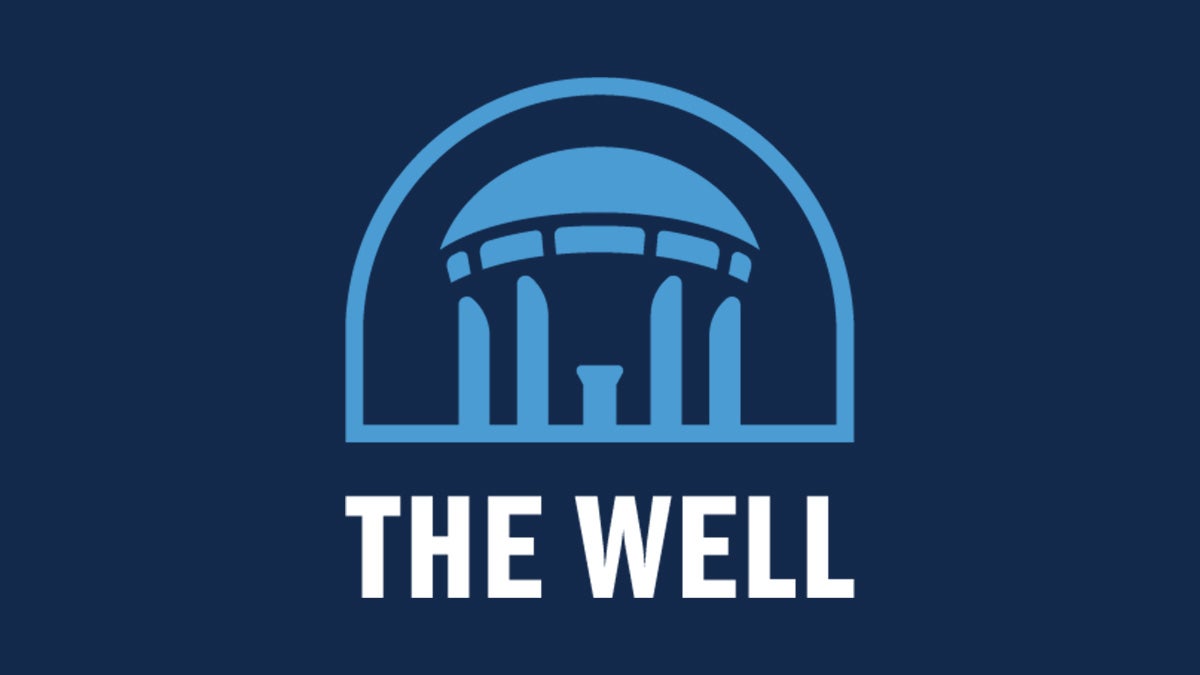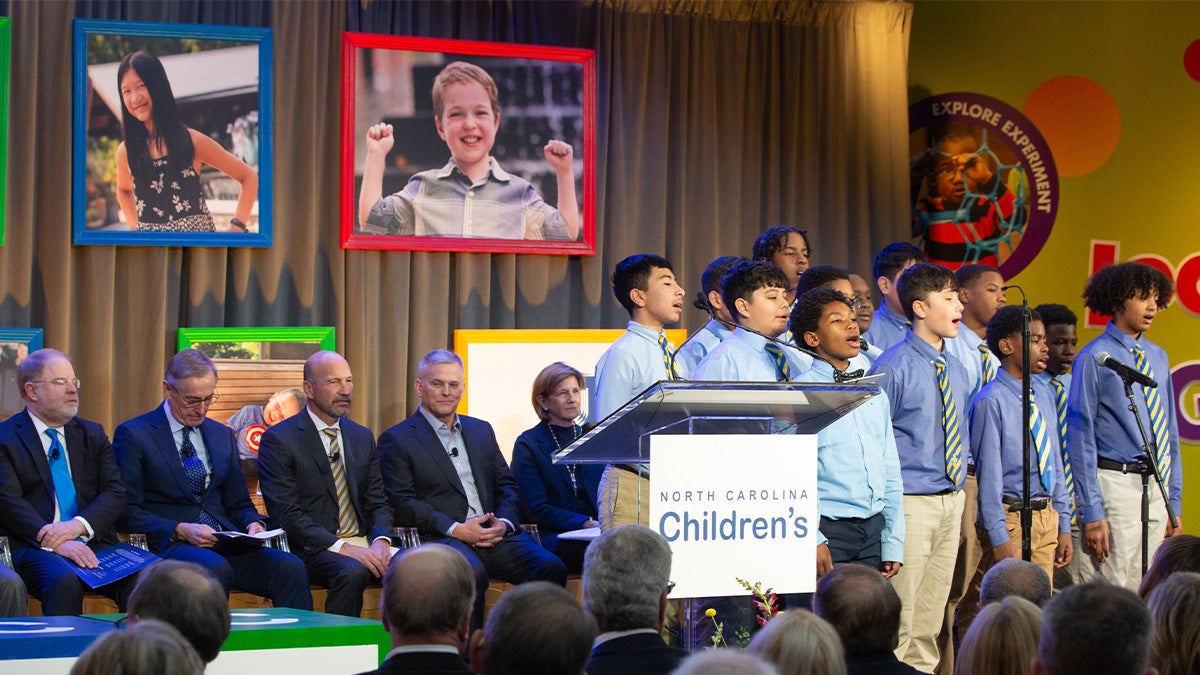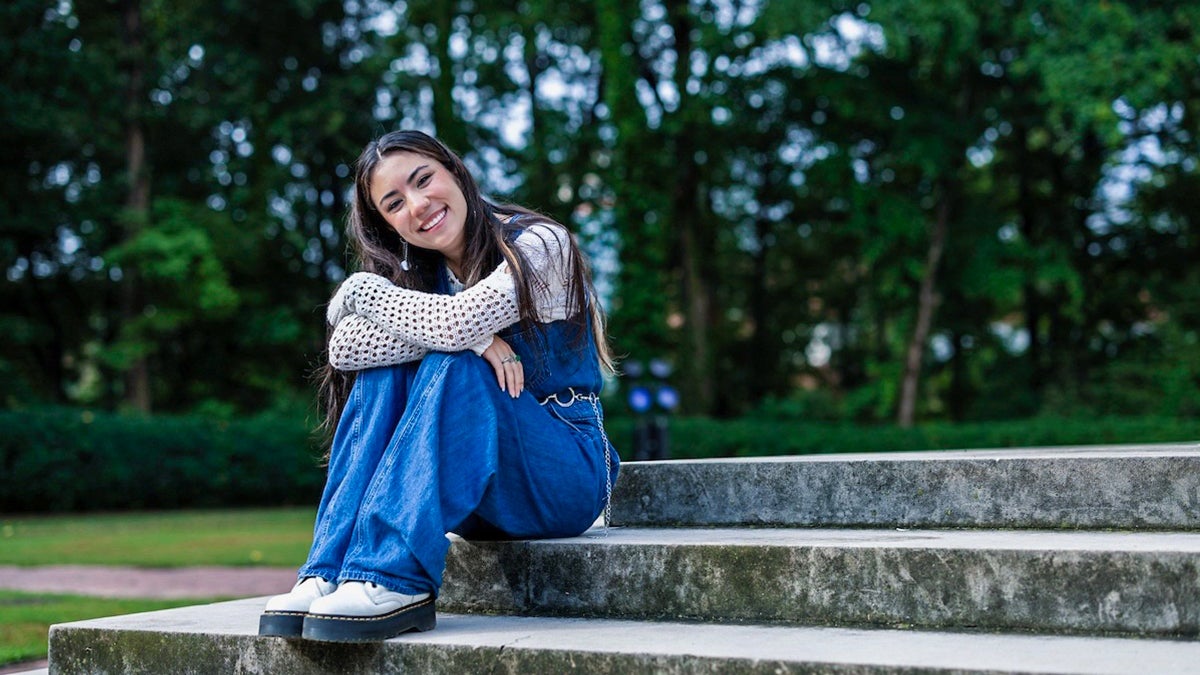A common Core
A new venue in downtown Chapel Hill will help the University reinforce its own core values.
The University and the Town of Chapel Hill will share a common core in a little over two years.
A $5 million arts venue called The Core@Carolina Square will occupy a space at the heart of the new Franklin Street development, Chancellor Carol L. Folt announced May 27 at a Memorial Hall event.
The venue will include a 4,000-square-foot black box theater, a 3,000 square-foot rehearsal studio and an arts innovation lab. The space will also serve as a home for the Arts@The Core initiative, the Andrew Mellon Foundation-funded project that brings together academics and the arts.
The venue is expected to open in August 2017.
Folt, addressing an audience of local elected officials, community leaders and arts advocates as well as students, faculty and staff, called the venue “an exciting new strategic commitment to the arts that we believe is designed to extend the influence of the arts across campus and even more deeply into our community.”
Carolina Square is the nearly $100 million development that will replace University Square shopping center at 123 W. Franklin St. The development will have three buildings, with 200,000 square feet of commercial space, 246 apartments and 880 parking spaces, according to developers Cousins Properties and Northwood Ravin.
Drawings at the presentation showed the The Core@Carolina Square on the ground floor of one of the three Carolina Square buildings, facing the interior of the site and an open green space. The lease term will be 10 years at an initial annual rate of $226,800. Folt said the University has committed $4 million to the project.
“The day has been a long time coming,” said Jeff Furman of Cousins Properties and Northwood Ravin. “We’re excited to make that vision a reality.”
The primary goal of Carolina Square is to bring retail spaces up to Franklin Street while also providing room for apartments, offices and parking. A performing arts space in the development fits into a campus master plan for an “arts corridor” that also includes the Ackland Art Museum, Kenan, Hanes and Hill halls and Memorial Hall. The building will also be across the street from 140 West Franklin Street, another public-private partnership that transformed a town parking lot into a mix of condominiums, retail outlets and restaurants.
Chapel Hill Mayor Mark Kleinschmidt expressed the hope that The Core@Carolina Square will help “remove the artificial barriers between the University and the town.” He praised the University’s “true investment in creating a landmark in our downtown where people can live, work, play and enjoy the full bounty of what both institutions have to offer.”
While the mayor looks forward to performances that bring more people to downtown and a venue that will be a new resource for local performing artists, Executive Director for the Arts Emil Kang anticipates new artistic projects that can be developed at the venue. Visiting artists and artists-in-residence can create new works on their own or in collaboration with faculty members, students or local artists in the space, which will be overseen by Carolina Performing Arts, he said.
Participation in Arts@TheCore since its launch in 2012 shows the “deep interest faculty have in collaborating with our visiting artists in using the arts as a tool for both teaching and learning,” Kang said. As an example, he pointed to an Arts@TheCore collaboration between pediatric oncologist Stuart Gold and Alvin Ailey dancer Hope Boykin to create a movement workshop that allowed pediatric cancer patients to experience the joy of dance.
Having the dedicated space at The Core@Carolina Square will lead to more creative, cutting edge and risky explorations at the intersection of arts and academics. In the future, Kang said, he sees a choreographer working with a brain-imaging specialist “to show how dance can express the very unique challenges faced by autistic children and how advances in brain-imaging technology provide more information than ever before.”
The Core@Carolina Square will also help the University reinforce its own core values. “The goal is to harness the unique power the arts have to inspire creative thinking, to address the day’s most pressing and complex issues and to foster collaboration,” Kang said.




